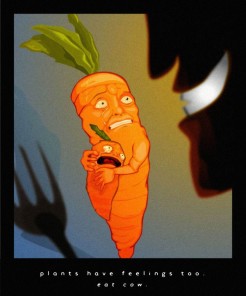A new study has shown that allowing your infant to “cry it out” as part of sleep training does not lead to any long term emotional or psychological harm in children.
I find the study fairly pointless since I suspect that most parents already know this. When a parent is unwilling or unable to sleep train their child, it is often less about a concern over the long-term psychological impact on their child and more about the parent’s inability to prioritize long-term health over short-term discomfort.
My wife and I sleep trained our daughter when she was four months old. It took about three nights, and they were not easy. We would sit at the kitchen table and listen to our baby cry in her crib for an hour or more each night. There were moments when each of us would begin to crack, only to be strengthened by the other. After three nights, most of the crying was over and my daughter went to bed with little protestation.
Even since then, she has been an excellent sleeper. She sleeps 10-12 hours each night and has never slept in our bed. In fact, the one night when we wanted her to sleep in our bed, after a nasty fall and fear of concussion, she refused, preferring the comfort of her own bed.
We will do the same for our three month old son soon, though he is already sleeping 7-8 hours a night in a cradle beside our bed. It will not be easy. We will experience great a deal of parental discomfort, and Charlie will not enjoy it either. But we will choose long term health over short term discomfort, and Charlie will be the better for it.
I realize that there are babies for whom sleep does not come as easily, but I also believe that these babies are few and far between. When a child is not sleeping through the night or spending parts of the night sleeping in the parents’ bedroom, it is far more common, at least in my experience, for the parents to be the cause. These are the parents who respond to their child’s every cry, choose to keep their child in their bedroom with them for extended periods of time, allow their child to climb into bed with them on a routine basis, and lose hundreds, if not thousands of hours of sleep because they are unwilling to let their babies cry it out.
Though I am sure they exist, I have never met a parent who attempted to sleep train their child by allowing that child to cry it out who failed to produce a child who sleeps through the night in his or her own bed.
And as a teacher with fifteen years in the classroom and the husband of a woman who seems to know everyone on the planet, I know a lot of parents.
A friend of mine recently complained about how her nine month old daughter was still not sleeping through the night. I explained to her how to sleep train her child, including white noise and blackout curtains in addition to allowing her daughter to cry it out, but I also warned her that it would not be easy.
But I also told her that by sleep training her child, as difficult as it may be, she would be helping her daughter beyond measure. In return for short term suffering, her daughter would be a well rested child, and all of the crucial development that takes place when a child is asleep could proceed without interruption. Her child would also be less moody and far better prepared to handle the challenges of the day.
In addition, she and her husband would be more well rested. This would result in a more productive day for both of them and would likely have a positive impact on their marriage.
Two months later I asked her how her baby was sleeping. She said that she took my advice, and after five nights of crying it out, her baby was sleeping through the night, 8-10 hours at a time.
I have a friend who is fond of the expression “You pay now or you pay later,” and I think it is perfect when it comes to sleep training. I cannot tell you the number of parents who I have known who have their children sleeping in their beds or in beds set up in their parents bedroom for years.
I’ve also known fathers who sleep in their child’s bed so the child can sleep with mom and parents who routinely sleep on the floor in their child’s bedroom.
For many, it is a tragic source of shame or embarrassment.
Others they devise complex and illogical rationales to defend the addition of a second bed in their bedroom (this happens more often than you might think) or the the presence of their child in their bed for the majority of the night.
Either way, these are “pay it later” parents.
I am convinced, not by this recent study but by simply common sense, that the only long-term psychological impact of sleep training your child is contentment, for both the child and the parents.









